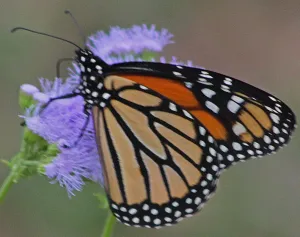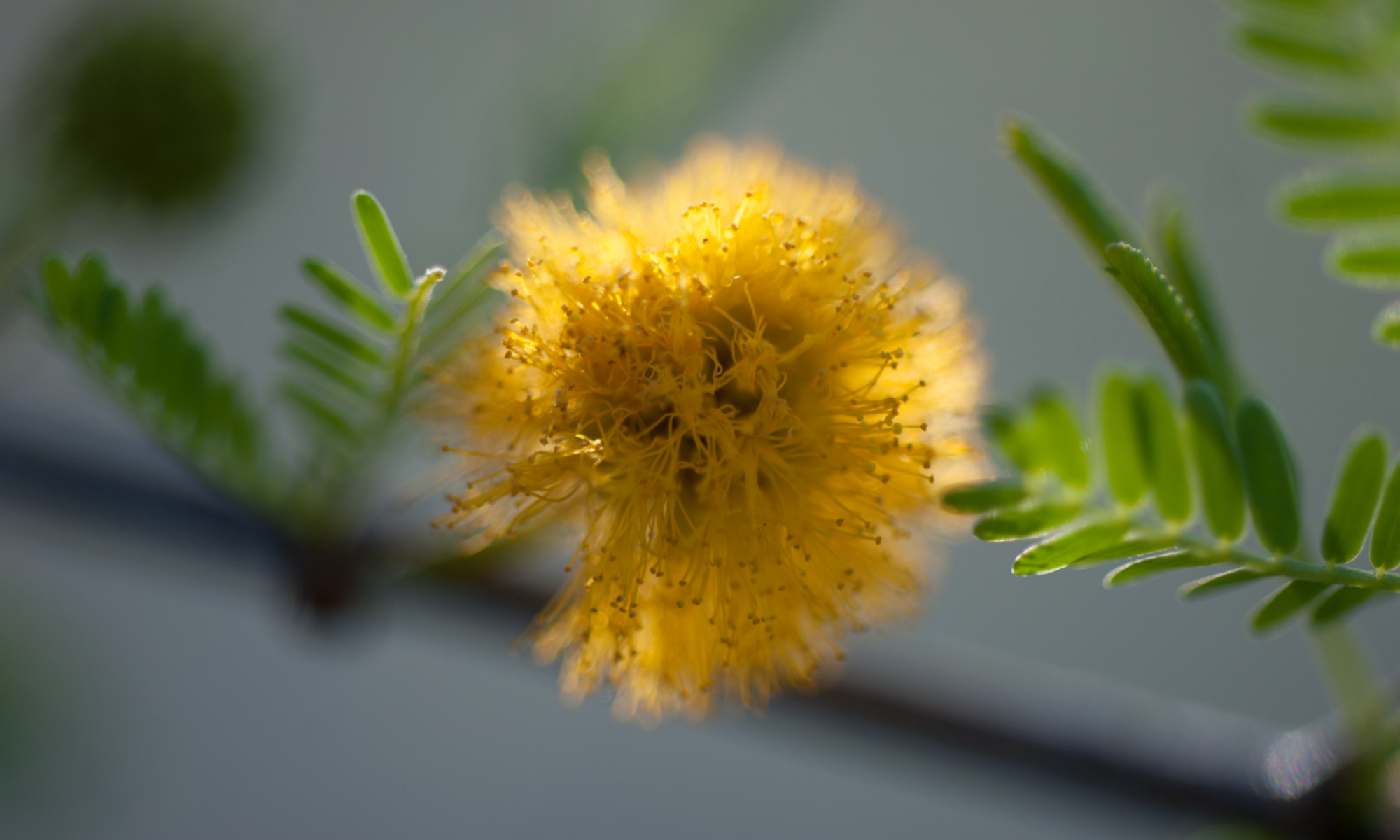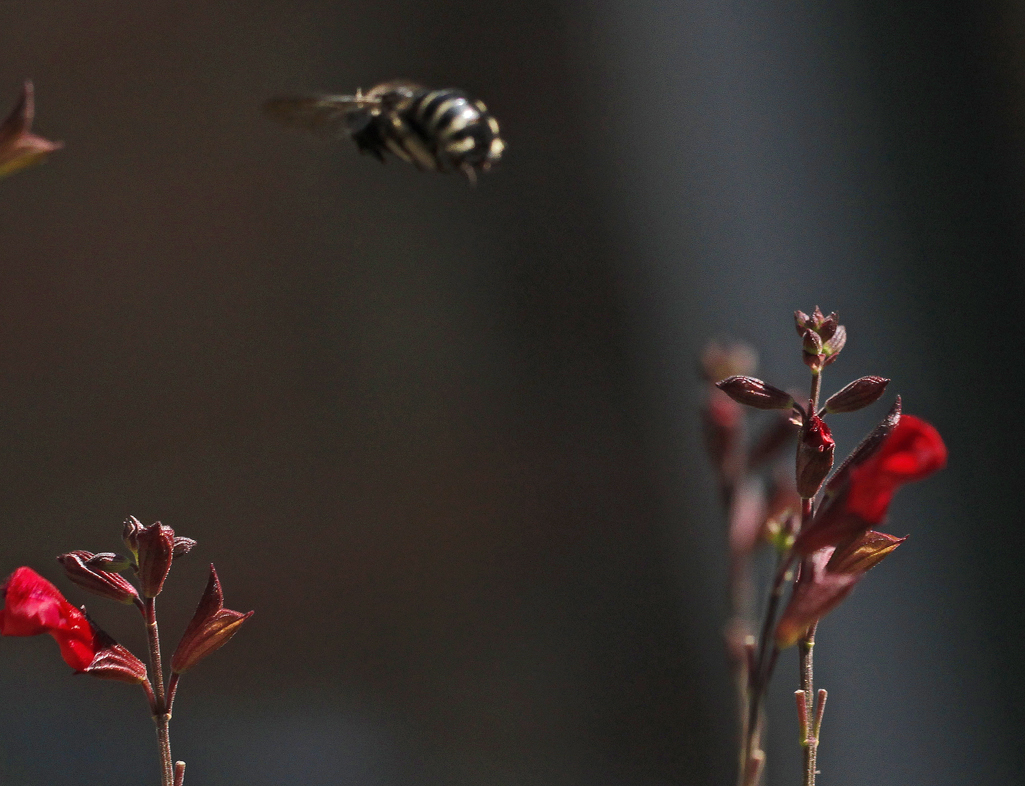** ARCHIVED POST – LINKS AND IMAGES MAY NOT WORK**
— by Nancy Pumphrey
Jodi McCumber from Jackass Honey Farms in Liberty Hill, TX presented so much information on bees and pollinator plants. When you live in the country the saying goes you wear lots of hats to make a living. Well, Jodi is no exception to that rule. (Note: Due to the current health crisis, the meeting was sparsely attended with members and newcomers seated with plenty of distance from each other.)
Jodi is a certified beekeeper. In her business, she removes beehives and swarms from unwanted places and specializes in removing Africanized bee swarms. She makes soap, honey products such as salves, lotions and gift baskets to sell. As if that was not enough, she also runs their Jackass Honey Farms gift shop, gives tours, and home schools her son.
She has 335 hives throughout the area. When she started growing wildflowers for the bees on her farm, she found the monarchs were also frequenting her place and decided to make it a Certified Monarch Habitat. Some of the most important sources of food for the bees are dandelions in early spring, horsemint, mealy blue sage, Gregg’s mistflower and white mistflower. She also grows sage, apple and pear trees, lavender, and rosemary for the bees and other pollinators. We were able to have a lively discussion regarding natives and non-natives in relation to bee food and the importance of not using invasive plants but finding a native alternative instead.
Jodi and her son announce dates for tours of their farm on her Facebook page or by email. Just go to www.jackasshoneyfarms.com and sign up.
Here are just a few of the interesting facts we learned about bees.
- Bees, except the queen, live 4-6 weeks.
- Queens can live over 8 years and lay 700-2500 eggs a DAY. The Queen has other bees who wash them, feed them, etc. because they are so busy laying eggs.
- Bees don’t fly in the rain or fog.
- You might see them cling together or to flowers until it is dry enough to return to the hive.
- Beekeepers move bees to different places to pollinate a crop, such as almonds in California, but only 50-60% of the bees arrive back home due to pesticide and insecticide use in the fields.
- Bees need water, so put rocks or sponges in a shallow bird bath so they can land on something to get a drink. They also like a little salt or sugar in the water.
- A bee can fly 5 miles to find food or water.
To learn more about bees Jodi recommends the Netflix documentary “Hive Alive” for a close up of bee behavior.
Jodi brought lots of products for us to taste. She is available to talk at meetings and at schools. Contact her at 512-484-1101.
You can see the March 12, 2020 business presentation slides here.
** ARCHIVED POST – LINKS AND IMAGES MAY NOT WORK**


